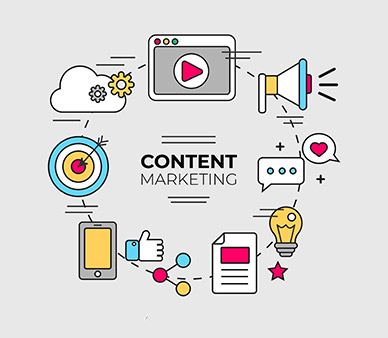
Content marketing is a strategic approach to marketing that involves creating and distributing valuable, relevant, and consistent content to attract and engage a specific target audience. The primary goal is to drive profitable customer action, such as increasing brand awareness, generating leads, or fostering customer loyalty, without directly selling products or services.
Content marketing encompasses various types of content, such as blog posts, articles, videos, infographics, podcasts, social media posts, eBooks, and case studies. Rather than focusing on traditional advertising, content marketing aims to provide valuable information or entertainment that resonates with the audience, solving their problems or addressing their needs.
This marketing approach relies on building trust and relationships over time by delivering content that informs, educates, or entertains, leading to a more organic form of engagement. By positioning a brand as a trusted source of information, content marketing helps businesses establish authority in their industry and create long-term connections with their audience.

While content marketing offers numerous benefits, it also presents several challenges that businesses need to address to create effective and sustainable strategies. Some of the key challenges of content marketing include:
Creating an effective content marketing strategy involves several key steps that ensure your content aligns with your business goals and resonates with your target audience. Start by defining your objectives—whether it’s increasing brand awareness, generating leads, or driving sales. Next, identify your target audience and understand their needs, preferences, pain points, and behavior to tailor content that speaks directly to them. Develop a content plan that outlines the types of content you’ll create (e.g., blog posts, videos, social media updates), the platforms you'll use, and the frequency of your posts. Focus on producing high-quality, valuable content that educates, entertains, or solves problems, positioning your brand as a trusted authority. Incorporate SEO best practices to increase visibility and drive organic traffic. Consistently analyze the performance of your content through metrics such as engagement, conversions, and traffic to refine and improve your strategy over time. Lastly, ensure your content is distributed effectively across the right channels to reach your audience at the right time. By aligning content with business goals and audience needs, your strategy will foster long-term relationships and deliver measurable results.
There are several types of content used in content marketing, each serving different purposes and helping businesses engage with their audience in various ways.
Storytelling plays a crucial role in content marketing by helping brands connect with their audience on a deeper, emotional level. Unlike straightforward promotional messages, storytelling humanizes the brand, making it more relatable and memorable.